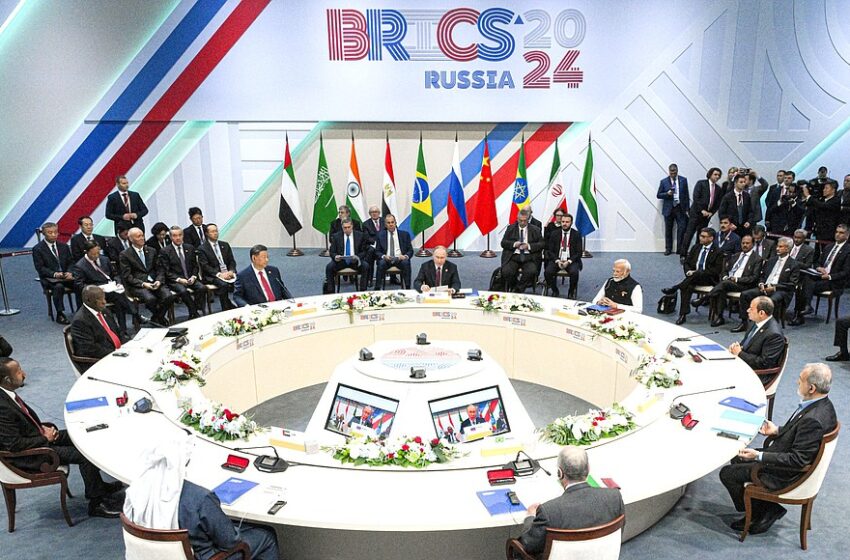
IMF: Global Economy Set to Rely More on BRICS
The global economy is set to rely more on the BRICS group of emerging economies to drive global growth, rather than their wealthier Western counterparts, the International Monetary Fund (IMF) said in its latest forecast.
The 16th summit of BRICS Group, which was held in Russia this week, has added five new members and they include Egypt, Ethiopia, Iran, Saudi Arabia and the UAE and with these new members the Group has become more strong on all fronts.
Compared with its last forecast six months ago, the IMF now expects a larger share of growth over the next five years to come from the BRICS economies of China, India, Russia and Brazil, according to a report published on a purchasing-power-parity basis this week.
According to Bloomberg, which reviewed the IMF forecast, said that by contrast, the expected contribution from G7 members such as the US, the UK, Italy, Canada, France, Germany and Japan has been revised downward.
China will be the biggest contributor to global growth over the next five years, with its 22% share larger than that of all the G7 nations combined, according to Bloomberg calculations. India is the other global growth giant, expected to add nearly 15% of the total through 2029.
According to a report in Arabic daily Al Arabiya, some forecasts for other countries also illustrate how the global economy has become increasingly dependent on emerging markets, especially on the basis of a purchasing power parity measure that seeks to adjust for prices and tends to give greater weight to poorer but more populous countries than to richer ones.
Based on this, Egypt is expected to add 1.7 percentage points to global growth over the period, the same as Germany and Japan. Vietnam is expected to contribute about 1.4 percentage points, on par with France and the UK.
US Lagging
The US economy’s strong expansion over the past 25 years, especially in the post-pandemic period, makes it the largest contributor to global growth among advanced countries. However, it has not been able to maintain its share of the global economy in terms of purchasing power parity, compared to the trajectory of the most populous countries, India and China, the report said.
The two smallest G7 economies, Canada and Italy, are expected to contribute less than 1% each to global GDP growth over the five-year period — less than much poorer countries with larger populations such as Bangladesh, Egypt or the Philippines.















